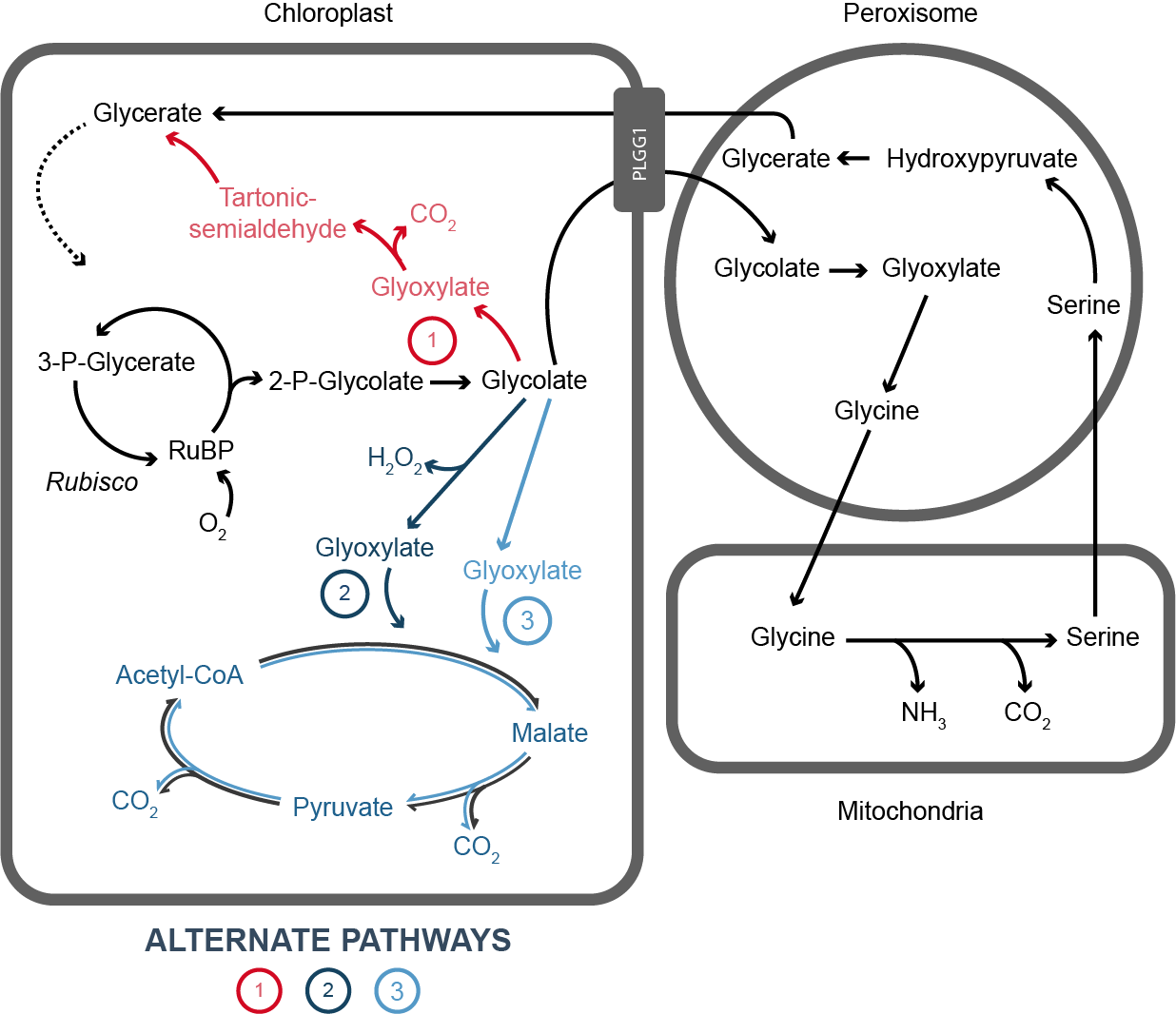DOI: 10.1126/science.aat9077
Synthetic glycolate metabolism pathways stimulate crop growth and productivity in the field
Abstract
Photorespiration is required in C3 plants to metabolize toxic glycolate formed when ribulose-1,5-bisphosphate carboxylase-oxygenase oxygenates rather than carboxylates ribulose-1,5-bisphosphate. Depending on growing temperatures, photorespiration can reduce yields by 20 to 50% in C3 crops. Inspired by earlier work, we installed into tobacco chloroplasts synthetic glycolate metabolic pathways that are thought to be more efficient than the native pathway. Flux through the synthetic pathways was maximized by inhibiting glycolate export from the chloroplast. The synthetic pathways tested improved photosynthetic quantum yield by 20%. Numerous homozygous transgenic lines increased biomass productivity by >40% in replicated field trials. These results show that engineering alternative glycolate metabolic pathways into crop chloroplasts while inhibiting glycolate export into the native pathway can drive increases in C3 crop yield under agricultural field conditions.

pathway designs. AP1 (red) converts glycolate to glycerate using five genes from the E. coli glycolate pathway encoding the enzymes glycolate dehydrogenase, glyoxylate carboligase, and tartonic semialdehyde reductase. AP2 (dark blue) requires three introduced genes encoding glycolate oxidase, malate synthase, and catalase (to remove hydrogen peroxide generated by glycolate oxidase). AP3 (blue) relies on two introduced genes: Chlamydomonas reinhardtii glycolate dehydrogenase and Cucurbita maxima malate synthase.
